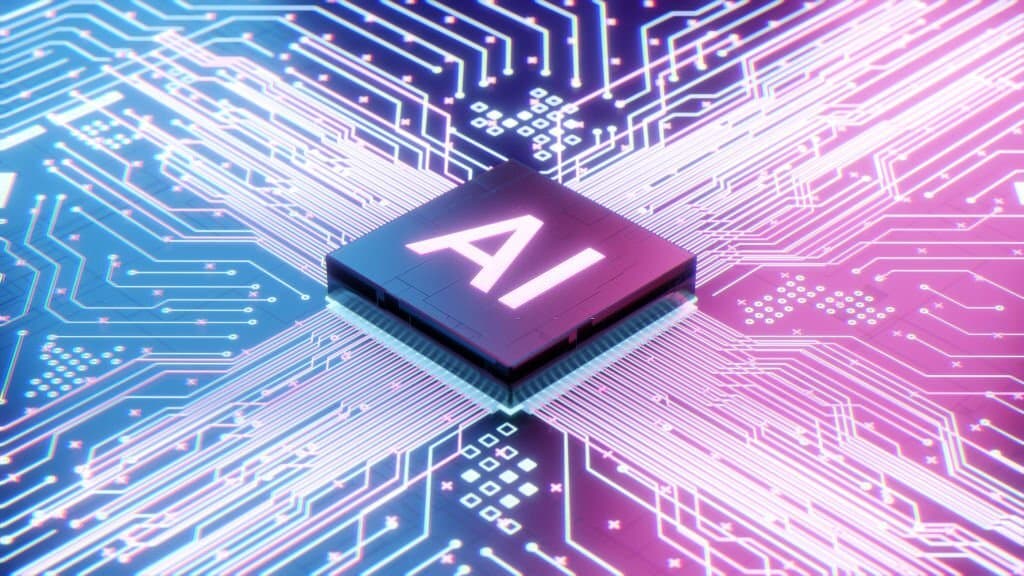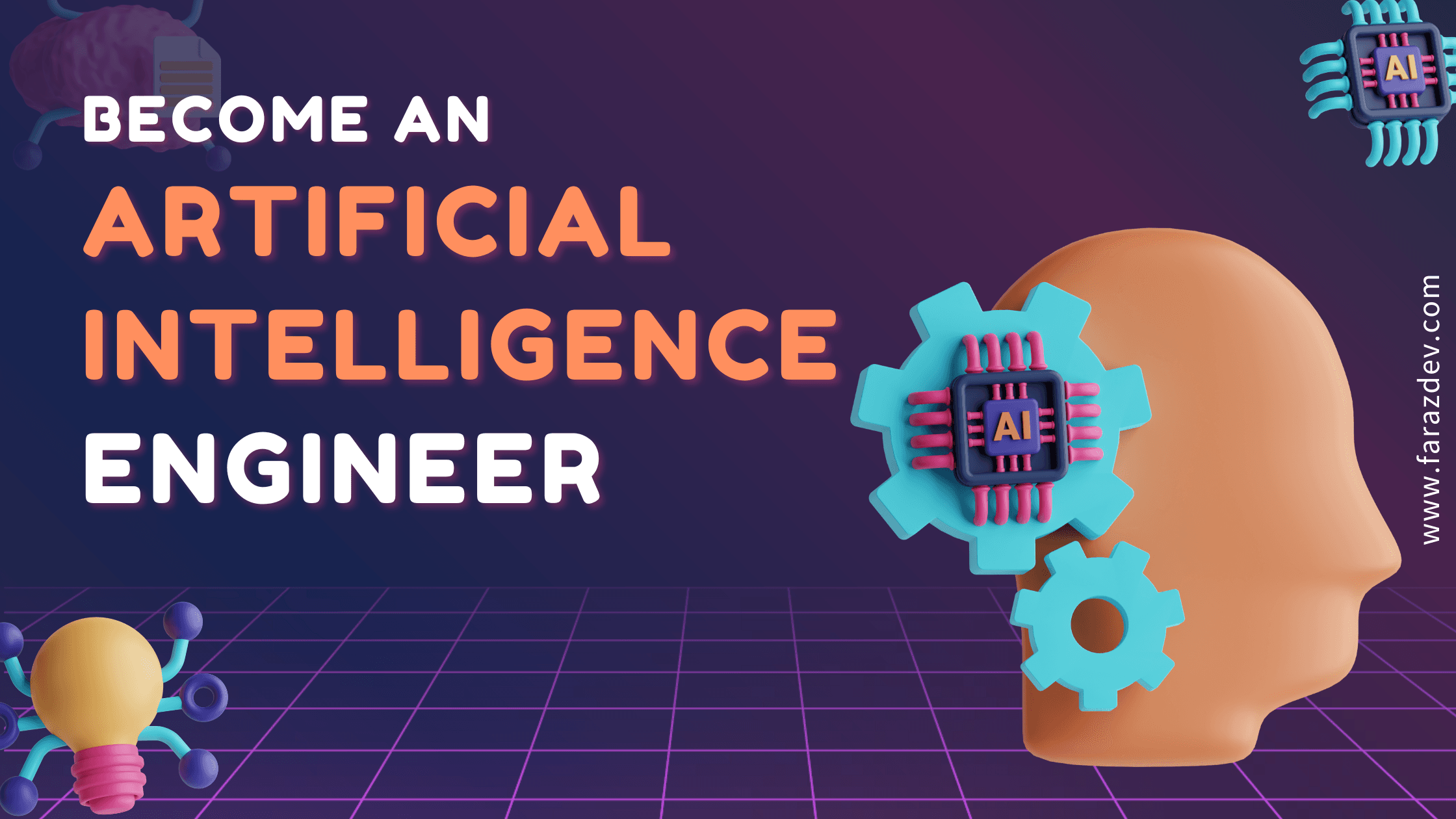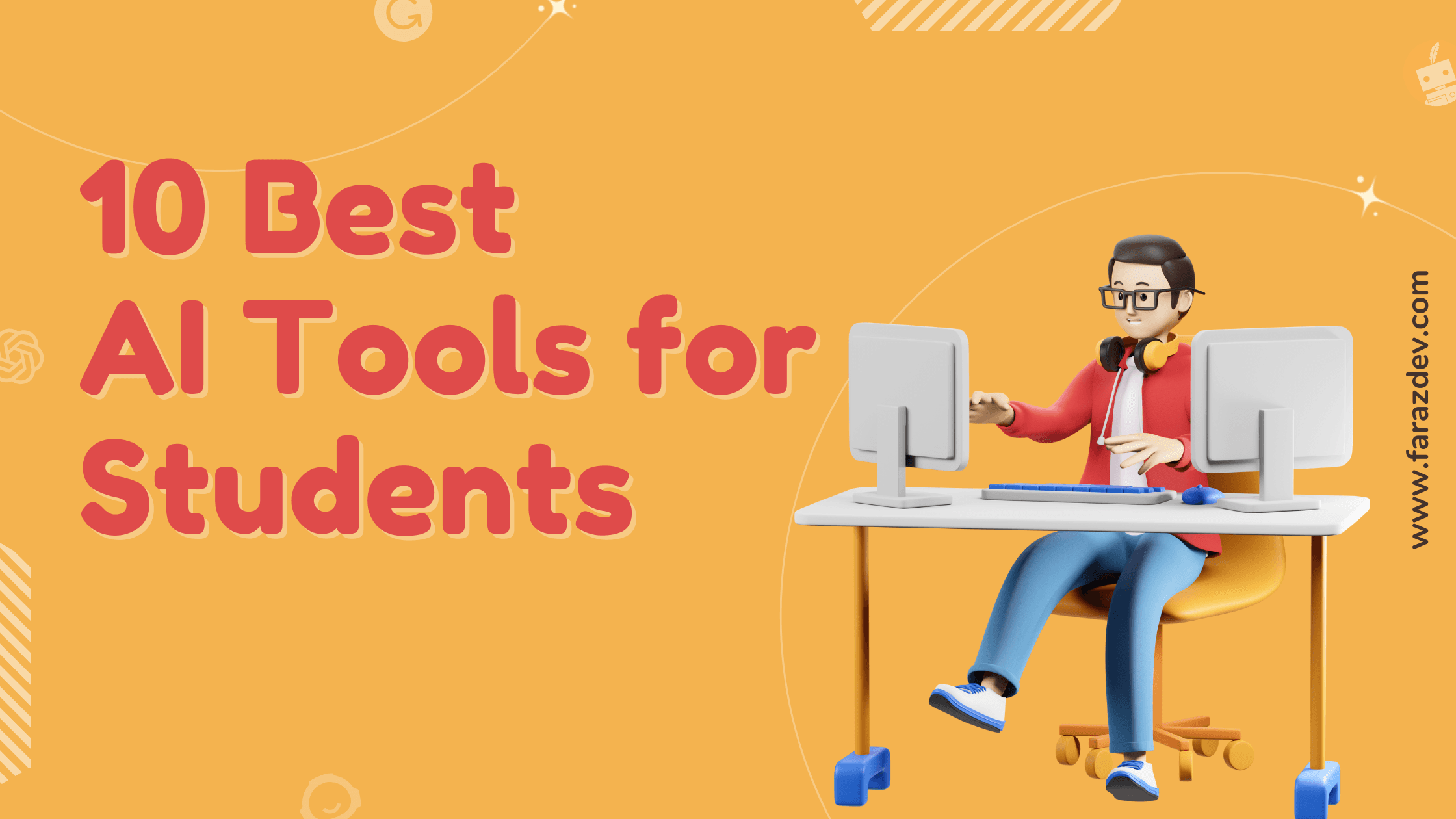Are you seeking a path to becoming an artificial intelligence engineer? If that’s the case, this article covers everything. The demand for AI technologies has increased in recent times. AI is a game changer; it has taken over many jobs worldwide.
If you are a teenager looking to pursue a career, artificial intelligence is one of them. According to Market Splash, the productivity of the world’s economy by up to 40% could be handled and increased by using AI technologies.
In this article, we’ll go through a detailed guide to becoming an AI engineer. Without further ado, let’s burn your curiosity bubbles.
What is an Artificial Intelligence Engineer?

An AI engineer typically works and brings together programming languages, technologies, and designs. They develop and deploy different intelligent systems for the betterment of the company. These systems require human intelligence for decision-making and natural language processing.
Moreover, artificial intelligence engineers also understand complex sets of data and designs and can leverage different machine learning algorithms. They find possible solutions to the obstacles for the company or a business – helping them to achieve their desired goals.
In addition, they also create AI models which can learn and adapt new knowledge by developing neural networks.
Also read: How to Make Money Using Artificial Intelligence
What does an AI Engineer do?
An AI engineer with machine learning, programming, and other technical skills helps companies and businesses meet their goals. Here are the DOs of an AI engineer:
- An AI engineer has to work with a team to manipulate large amounts of data.
- Build different machine learning algorithms and models for improving and locating business insights.
- An AI engineer also works with ingestions and the overall infrastructure of a company’s product.
- Creating chatbots and other AI models into API to interchange them with other applications.
- They also collaborate with other teams, such as data scientists, product managers, engineers, and cross-functional teams.
As an AI engineer, you must think of the business and company growth you are working for. Moreover, it would help if you also focused on the latest trends in machine learning models and AI development around the globe so that you can advantage your company with the best engineering practices
Skills Required to Become an AI Engineer
Technical Skills:
Learning Programming Languages
To become an artificial intelligence engineer, you must master the art of programming languages. There are many programming languages. It is indispensable for an AI engineer to learn the concepts of coding and programming languages.
Python, Java, C++, LISP, R, and Prolong are common learning languages. Python is a potential language to learn for AI engineering. Most AI engineers consider it. It has libraries that work exceptionally for both ML and AI. Some of the standard Python libraries are:
- Pandas
- Keras
- NLTK
- PyBrain
- StatsModels
Moreover, Python is not only the programming language you should look to get your hands on. You can also strengthen your programming skills in languages like Java or C++. However, it is kind of impossible to gain expertise in every language.
Also read: How much do Artificial Intelligence Programmers make?
Understanding Database and Distributed Systems
Besides learning programming languages, you should also acknowledge yourself about distributed systems and databases. The distributed systems are interconnected nodes performing artificial intelligence tasks. Some nodes perform large amounts of data, making it efficient and fast.
Distributed systems also carry and are implemented in AI engineering several architectures, such as peer-to-peer, client-server, and cluster computing. Understanding distributed systems will allow you to work flawlessly for a business or company.
Applied Mathematics
Applied mathematics plays a vital role in your AI engineering journey. Subjects like statistics are fundamental parts of algorithms. The AI models you will build or test depend on these algorithms. For you to understand machine learning models such as Hidden Markov and Naïve Bayes requires an understanding of probability.
Furthermore, calculus and algebra are also essential to learning. These are all part of applied mathematics. All AI models are imperfect; calculus methods are used to eradicate and minimize errors to benefit the user. Linear algebra is used to manipulate data as matrices, a vital part of any machine learning program.
With that said, applied mathematics provides a rudimentary understanding of AI models and how you can assess them in a better way.
Familiarity with Big-Data Technologies
An AI engineer must learn and grasp the skills to handle big-data technologies, from which they deploy AI models and give possible effective solutions. Moreover, you will work with large amounts, which could be in terabytes or megabytes.
These can include distributed computed frameworks like Spark, Hadoop, Apache, and other big data technologies. These frameworks handle large amounts of data quite frequently.
There are NoSQL databases, which include Cassandra and MongoDB. Both of these databases are quite different from each other. Cassandra is a peer-to-peer database where all nodes are interconnected with each other. In contrast, MongoDB is a database that works with multiple documents.
Natural Language Processing and Computer Vision
Natural Language Processing is a key part of AI engineering. NLP works with computer science, linguistics, and information technology. By combining these, it can be used to operate many datasets.
An AI engineer must learn NLP techniques to work with different AI models. It involves videos, audio, and text, which NLP libraries process. NLP also has ambiguations such as Lexical (Word level), Syntactical (Sentence level), and Referential (referencing issue).
Some of the standard techniques of NLP are Syntax and Semantics. These techniques are important to understand for NLP.
Some of the techniques for Syntax are:
- Word Segmentation
- Parsing
- Stemming
- Sentence breaking.
Some of the techniques for Semantic are:
- Natural language generation.
- Word sense disambiguation.
- Named entity recognition.
NLP also has commonly used rule- and machine-learning-based algorithms. A machine learning-based system is more advanced than a Rule-based one. It uses statistical methods and performs tasks from the provided data.
Soft Skills/Non-technical Skills

Soft skills are some of the key skills for you to succeed as an AI engineer. These skills will help you coordinate and work with a swape of team members and work. Let’s discuss them, respectively.
Analytical Thinking
Brainstorming AI-related ideas and coming up with a conclusion is a regular life routine for an AI engineer. Analytical thinking is vital for AI engineering, as you will be amid by a lot of data and numbers.
With analytical thinking, you will be able to solve problems with logical thinking, analyze large amounts of data, recognize patterns, and identify trends in data. Moreover, it allows you to observe the accuracy of AI models, identify biases and errors, and provide innovative solutions.
Strong Communication Skills
Communication skills are crucial for your artificial intelligence engineering journey. It helps you be confident in meetings, presenting your projects, and collaborating with the team. AI engineering is competitive, in which you’ll have to explain your models and projects to your team. Communication skills make it all easy for you.
As an AI engineer, you will have to make your team understand the desired goals of a project. With effective communication, you can deliver the information quite efficiently. Strong communication skills can also help AI engineers build excellent and friendly relations with stakeholders, clients, the data science team, and others.
Familiarity with Latest Technologies and Trends
As we all are acquainted, AI is a fast-growing technology. Therefore, as an AI engineer, it is indispensable for you to be familiar with the latest trends and technologies in AI development.
With this, you can easily update your team with the latest trends and guide them. You can delve into upcoming market AI models and make points about them. Later, you can try to implement and modify these ideas for your own models and algorithms.
Time Management Skills
At last, we have time management skills. As mentioned, you will be working on large and big projects as an AI engineer. For this, you must have time management skills to manage all these tasks before the deadline.
Effective time management skills will help you complete projects within deadlines and help you prioritize tasks. Furthermore, AI engineers often handle more than one task at a time. Time management skills will help them complete these tasks on schedule.
In addition, these soft skills are vital to grasp for every AI engineer. It allows them to work efficiently and helps them to achieve greater productivity.
1. Pursue a Bachelor’s Degree
A bachelor’s degree is a primary step to becoming an AI engineer. Consider pursuing a bachelor’s degree in computer science or any related field such as Data Science, Statistics, Finance, and Information Technology. Companies and organizations consider candidates with a degree in these areas.
Getting a bachelor’s degree in any of these subjects will provide a robust foundation for your AI engineering journey. It also increases your chances of getting hired by companies. It also allows you to build a strong understanding of fundamental concepts.
In addition, you can also pursue a master’s degree in deep learning. It will help you understand and make you more eligible for AI engineer roles.
2. Take Artificial Intelligence Courses
Online courses will help you gain expertise in AI-related subjects. You can enroll in programming language courses, machine learning, and other related subjects. After getting certifications, you can upgrade your CV or resume to help you get high-paying jobs.
3. Get Experience
Experience is vital for you to become a successful artificial intelligence engineer. One of the best ways to gain experience is through an internship program. With this, you can gain relevant experience in this field.
Moreover, another way to get experience is to start a part-time job in a software house. You can also work on outsourcing projects or start freelancing in this field. In addition, internships and part-time jobs will give you AI industry knowledge and a firm understanding of artificial intelligence systems.
4. Prepare and Search for a Job
It’s better to search for jobs according to your expertise, experience, level of education, and qualifications. If you have only a bachelor’s degree, you can filter and search for the jobs that require only a bachelor’s degree for the position. LinkedIn is one of the best platforms to search for a beginner job. You can easily filter jobs according to your profile.
Furthermore, having a professional resume or CV with all the listings, such as accomplishments, experience, experience, qualifications, and attributes.
How much does an AI Engineer make?
According to Glassdoor, the average salary of an AI engineer is $128,049/yearly in the United States. Due to recent AI advancements around the globe, it is predicted that AI will create 97 million new jobs by 2025.
It has become a lucrative field in the upcoming years. So, planning before getting yourself into any university degree is better for your career. AI jobs have a huge demand nowadays. The salary of AI engineers also depends on their level of experience, skills, and industry.
Can I become an AI engineer without a degree?
It’s not quite possible to become an AI engineer without a degree. Most companies and organizations hire AI engineers with degrees in computer science, Data Science, Mathematics, and other courses related to it.
There is a bulk of AI engineering jobs in the market. A swap of people will be looking to pursue AI engineering jobs. To compete them with, it’s important for you to get a degree. The degree and certifications will help you maintain a solid understanding of Ai projects.
Conclusion
AI has created huge job opportunities and will continue to do so in the upcoming decades. So, it’s better to plan ahead for your career. We have discussed key skills to becoming an ai engineer and step-by-step guide in the above article. Computer science and other subjects provide a clear path for a successful artificial intelligence engineer.
If you want to read more articles related to freelancing and making money, feel free to check more content at Farazdev.com!




